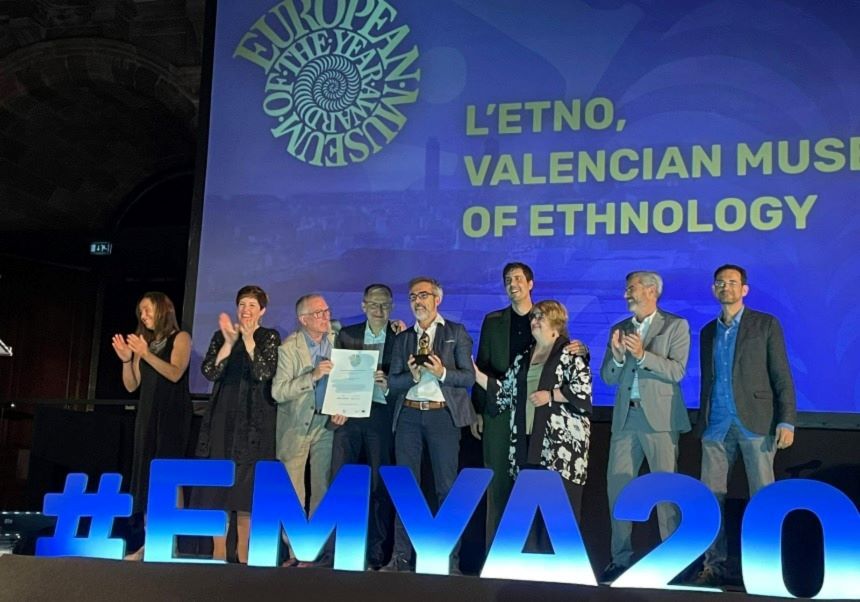
The ETNO museum wins the Emya award given each year by the European Museum Forum, making it the second of the Valencian Country that has achieved the achievement after the Provincial Archaeological Museum of Alicante in 2004, and the fifth Spanish one.
The ETNO museum wins the Emya award given every year by the European Museum Forum, being the second of the Valencian Country after the achievement in 2004 of the Provincial Archaeological Museum of Alicante and the fifth Spanish (Medina Azahara of Cordoba (2012), the Cosmocaixa (2006), the Provincial Archaeological Museum of Alicante (2004) and the Guggenheim of Bilbao (2000)).
Thus, the ETNO museum is positioned as an international benchmark and starts in the best possible way with its new director Joan Seguí, who recently became director and who already commented on his investiture the idea that "I would like this work to be the starting point of this new stage of ETNO museum".
In this way, ETNO museum consolidates itself as a consolidated museum following the great work carried out during the period of the previous director Francesc Tamarit. During that stage, the Econcult team collaborated in the realization of the study of the museum's audiences 2021. Thus, the Econcult team composed of Pau Rausell, Inés Carreras, Pau Díaz, Aitana Cabedo, Guillem Bacete and Sendy Ghirardy, together with the ETNO museum team composed of Francesc Cabañés and Paula Pedro showed the update of another study carried out in 2018 also conducted by Econcult but this time with the collaboration of Culturalink Consulting.
The linkage of Econcult with ETNO museum has been a constant, thus we can observe the participation of ETNO museum with the studies already mentioned but also with other shared projects such as the linkage with the ICOME committee where Pau Rausell and Franscesc Cabañés presented their study of audiences. However, the most recent element of cooperation is found with the linking of ETNO museum to the MESOC project. As we have already mentioned, Francesc Cabañés conducted an interview for the MESOC project as did many other key members of the cultural scene.
In this interview Cabañés talks about the need for the institution to have a social function linked to welfare; as well as understanding that the museum has to have scientific knowledge to develop projects in a much more efficient way. And ultimately, he points out the relevance of the citizen fabric for the configuration of the program.
In part 2 of the Policy Dialogue, Cabañés stresses that these types of organizations cannot be eliminated and are key for the citizenry. The enrichment of the lines of action as opposed to the consumption of resources they require shows that they are initiatives, according to Cabañés, that "are here to stay".
In short, ETNO museum continues its process of expansion and dissemination that began in the previous management stage. Its collaboration with scientific entities as well as innovation and good management have made it a museum of international reference, and it seems that in this new stage it will also be able to continue growing and consolidating itself as one of the museums of reference.









